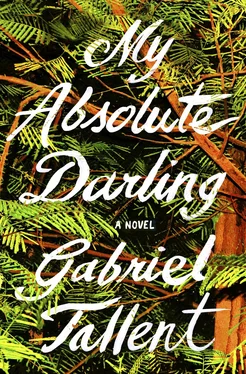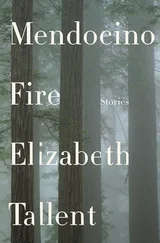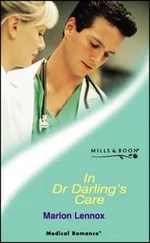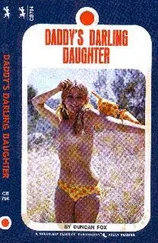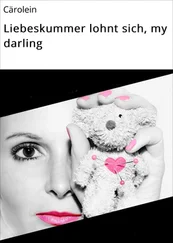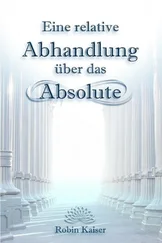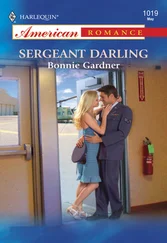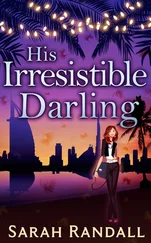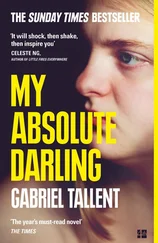Her moments of happiness occur right at the margin of the unbearable. She knows it will not last and she thinks, you can never forget, Turtle, what it was like, here, without him. You have to hold tight on to it, how good it is. Remember the way everything felt clean, and good. There was no rottenness in any of it. But also, she thinks, how hard. Nothing is as difficult as a sustained and unremitting contact with your own mind. She thinks, does it matter if it is difficult? It doesn’t matter. It is still better. Turtle Alveston, do you take this nothingness and this emptiness and this solitude? She thinks, do you take all these nights alone and will you have this and only this for the rest of your life?
One morning she walks down to Buckhorn Beach with a bag of small, bitter apples from the orchard. She sits in the lee of a driftwood log. The tide is out and the bay is roiled. The wind comes stiff from the north and raises foot-deep slurries of sand that make every current visible. Seagulls huddle together in the lee of the northern cliffs. Where driftwood logs lay crosswise to the wind, eddies of sand collect in their wind shadows and mound up into ramps that match the log’s silhouette. There is a constant, scouring hiss.
Behind each kelp heap, the wind cuts a V, leaving a gore where bark chips and bits of dried eelgrass accumulate, gyring and collapsing, toying together into balls. Sometimes, long strands of seaweed or sticks of driftwood spin up out of the eddy and go winging end over end across the cove and away to the south. She looks up the beach, and Martin is walking toward her, wearing jungle boots, 501 jeans, and a flannel shirt, shading his eyes against the wind, the gusts plastering the flannel to his chest. The light comes slantwise from behind him. The beach is sandy blue, the cliffs are dun brown, and Martin’s footsteps throw gouts of sand into the wind. He comes within ten yards of her, spreads his arms wide, his presence here a terrible trespass, and she loves this about him, sits looking at him, the wind whipping his long hair around his big, handsome face, him broad-shouldered and enormous as ever. She stands, dusts the sand off her butt, and walks into his arms. He smells like cigars and engine oil. They stand holding each other. Then Martin takes her by the arm and everything is like before. He leads her away up the beach and they follow the dirt track up the bluffs. Martin’s truck is parked beside the highway at the bottom of the drive.
He pulls out onto the highway and drives toward town with gear-shifting recklessness, taking the turns far out of his lane, looking over at her, chewing on his lower lip. There is a short-barreled AR-15 in the footwell, propped against the vinyl seat. The receiver has been milled out by hand for full auto. The vent holes in the exposed bolt carrier are streaked with filth. She sits beside it and beside him and she thinks of those moments of solitude that had given her such pleasure and knitted her pores tight, but which had been so painful, so unendurable that she could not choose them for herself, given the choice. In the closed cab, she can smell him, feel him invested with tremendous weight, a presence like a well beside her in the truck cab with its own sweet smell of WD-40 and of bad cigars crushed out in the ashtray.
“Kibble,” he says, “I fucked up. God, I know it.” Jaw set. Driving recklessly fast but paying attention, shifting, punching the accelerator, passing a car on a blind turn, roar of the engine, back into his lane, shifting, waiting, looking at her almost angrily, and then out at the road, gripping the wheel, gripping the stick shift, another glance at her, lopsided smile full of regret, Turtle catching flashes of him in her peripheral, there beside her and absorbing all of her attention, and he says, “Fuck, it’s not your fault. It was— Christ, do you remember the way he looked?”
“No,” Turtle says.
“ Awe . A look of awe. Do you remember it?”
“No.”
“You look like him. Do you know that?” She stares ahead, cliffs, guardrail, huge sparking blue ocean, a kelp bed, then the bluffs run out west of her and the ocean is hidden by houses, inns, and the hanging, wooden signs for inns, redwood fences, beautiful old cypress trees. He downshifts, climbing a hill past a stand of eucalyptus, snatches a look at her. “I lost it, kibble. I lost it. The look in his eye, Christ, that look. I can still see it . Painful, the doctor said, painful and fast, but that’s not what it looked like. He looked like he understood something, and not something good, kibble, not something good, but something like— I have run it through my head a hundred times. A thousand times, more, and I don’t know what I can get out of it. He was my father , and he looked up at me, and there is a way he must have felt, the specific, unquantifiable way that it feels to be extinguished into the godless dark, and it is— Christ, kibble. I watched him die. I killed him, kibble. If I had handled it differently—spoken to him differently, more gently.”
Turtle can still not look up at his face, his hands wrapping and rewrapping around the steering wheel, fixed over the gearshift, huge stained thighs of his Levi’s, splits in the vinyl, yellow insulation, rusted springs, brown rubber mats in the footwells, fir needles in the mats’ ridge-and-groove detailing. He looks at her and he says, “I lost it and I left, and fuck , kibble. I mean—for all the contempt I felt for him, for all of that contempt I had for his failures—I left. With my old man . . . he had one chance with me, I think. I really only gave him one chance. I never understood— who he was. I don’t think he loved me, or if he did, it was in some crippled way. All the mistakes he made, I held that against him and thought, I will never make his mistakes. His life is not life, and the mistakes he made, he made because he was cowardly and hard-hearted, a wretched, bigoted, hateful, impatient, dithering— Kibble, the things my father was . A fuck-off, an alcoholic son of a bitch, a murderer. And me, I was young and I had no compassion, I was never never going to make those mistakes. I wanted to repudiate everything he was, and more, I believed I could. There was no salvage—I was not like you, I did not listen, I didn’t care. No understanding. And fuck me, kibble, because for all of his failings, and for everything he got wrong there at the end, he came to you, he was worried about you, he was willing to give everything, and where was I?”
She looks at his shoulder, the flannel, his belt, his Daniel Winkler belt knife, the seat, the ashtray, out at the road ahead of them, then up, his jaw, working side to side with anger. “I was scared and I fucked it and I don’t know how— Christ! How have I become this man I am now, set in my ways, scared like he was, set like he was, uncompromising like he was , and I hate this, I never wanted to be this man, and I thought—Fuck! I saw him go down into the godless dark, and I saw you—saw you, and do you know what you are? The only numinous thing in a dark and profane world, and without you, nihilism. Do you see?”
He looks at her. She watches the ocean, watches the riffled red fescue on the bluffs. No, she thinks. No, it cannot be that in the end of it all, I am like you. That cannot be. Those parts of you I turn from, I will turn from forever and I will not at the end of it find that I am like you. She makes a wedge of her hands, fits it between her thighs, sits clenching them.
They eat breakfast on the porch of the MacCallum House, above the windswept Mendocino Bay. The server brings out breakfast burritos heaped with salmon caviar and garnished with nasturtium flowers and pea shoots. Martin’s face fills with an expression she cannot read and cannot reproduce in her own mind. He holds his fork in one hand and his knife in the other with his forearms against the table, leaning in toward her, his attention fixed on her, and he says, “Just look at you. Jesus Christ.” She doesn’t say anything. Women near them are wearing summer dresses; the men are in white dress shirts. Turtle does not know if they are tourists or Silicon Valley transplants with summerhouses here. Martin has no attention for any of it but her. Turtle is wearing old combat boots, olive drab fatigues, a black sports bra, and a wifebeater. Tangles of hair keep blowing across her face and sticking to her lips. Martin examines her like a man probing his mouth for canker sores. “Go on,” he says, “try your breakfast burrito.” She picks up her fork, looks at the heaped orange caviar. “You are the most beautiful thing,” he says, “that’s what I think. Everything about you, kibble, is perfect. Every detail. You are the platonic ideal of yourself. Your every blemish, every scratch, is inimitable elaboration on your beauty and your wildness. You look like a naiad. You look like a girl raised by wolves. You know that?” She cuts into her burrito, spills its home fries and scrambled egg, rakes them across the plate with the tines.
Читать дальше
Конец ознакомительного отрывка
Купить книгу
